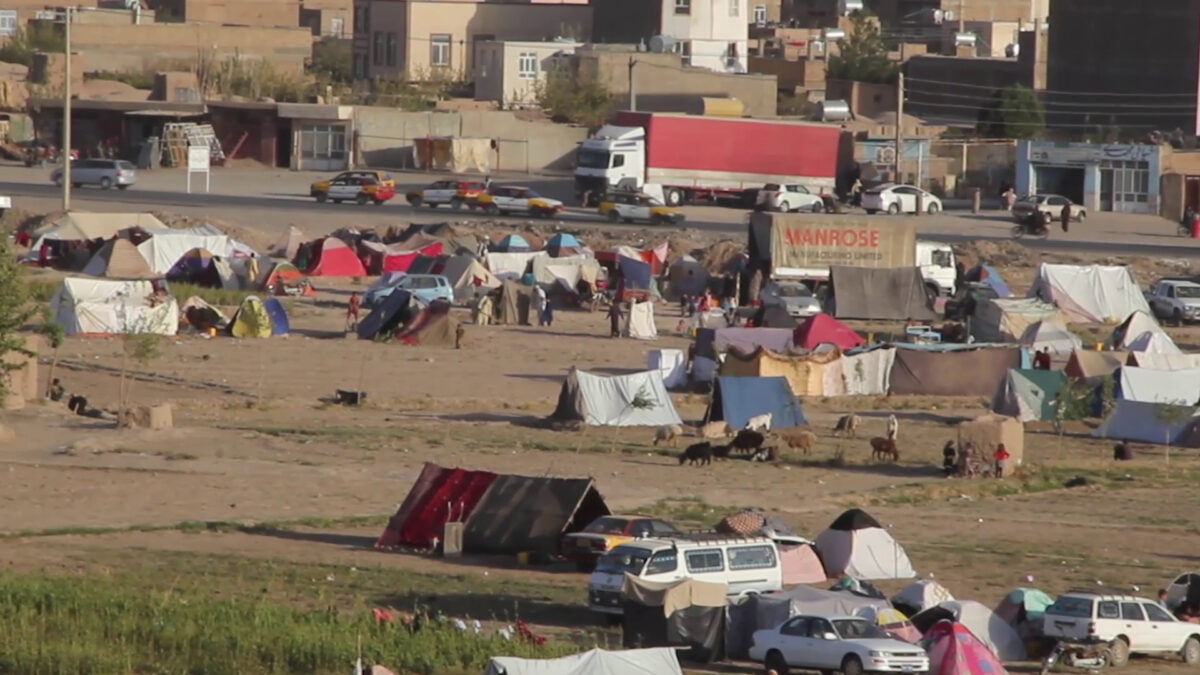Two weeks after a devastating earthquake rocked Herat, numerous families are enduring harsh living conditions in makeshift tents at a camp on the outskirts of Herat city, grappling with cold nights and a lack of essential facilities.
Families that have relocated to these tents out of fear of another earthquake and due to the loss of their homes have expressed deep concerns about the health of their children, who are exposed to illnesses while spending their nights in the chilling weather.
The October 7 earthquake in the Zinda Jan district of Herat, which was followed by at least four tremors on the same day and another powerful 6.3 magnitude earthquake a week later, resulted in the tragic loss of over 2,000 lives.
According to the United Nations, more than 21,000 residences were destroyed in the earthquake.
Naseer Ahmad, a resident of Herat, lamented the lack of access to proper tents for shelter, stating, “Everyone is living under mosquito nets or rugs. No one has paid real attention.”

Abdul Satar, another Herat resident, highlighted the issue of internal displacement caused by the earthquake, saying, “Since the earthquake occurred, people have suffered significant losses, and some individuals have come to live on our land.”
The earthquake has taken a heavy toll on children and women, and affected families are struggling with limited access to adequate healthcare facilities and clean water.
“We are enduring extreme cold. We lack proper tents. We are sleeping on the ground, and no one has come to our aid,” shared a child from one of the displaced families.
Esmatullah, another Herat resident, shared a similar account, saying, “We are residing in cold, open spaces. There is no access to clean water and electricity. Our children have fallen ill.”
Despite the announcements of millions of dollars in aid from various countries and humanitarian organizations to support earthquake-affected individuals, vulnerable families are yet to receive the shelters they desperately need.
One Herat resident expressed his frustration with the situation, emphasizing, “The people here require tents to shield them from the cold during the nights. They need food to survive, at the very least, and their children require essential medicines.”
It is worth noting that Matiul Haq Khalis, the head of the Afghan Red Crescent Society (ARCS) under the Taliban’s administration, has stressed the provision of humanitarian assistance to those affected by the earthquake during his discussions with officials from several countries.





